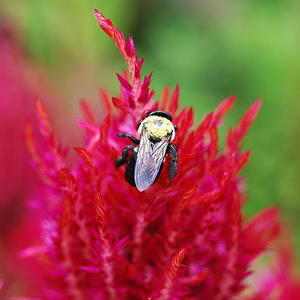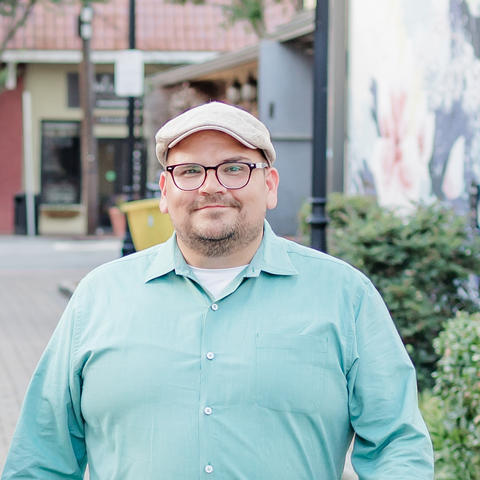
Section Branding
Header Content
Georgia Today: Grim milestone for inmates; Peanut crop numbers down; UNESCO in South Georgia
Primary Content
LISTEN: On the Thursday, Dec. 26 edition of Georgia Today: More in-custody deaths than in any other year for the Georgia Department of Corrections; Georgia's peanut crops were significantly smaller than usual; Okefenokee National Wildlife Refuge is a step closer to becoming a UNESCO World Heritage Site.

TRANSCRIPT
Peter Biello: Welcome to the Georgia Today podcast from GPB News. Today is Thursday, Dec. 26. I'm Peter Biello. On today's episode, the Georgia Department of Corrections is experiencing a grim milestone this year. Georgia's peanut crops were significantly smaller than usual this year, and part of South Georgia is one step closer to becoming a UNESCO's World Heritage site. These stories and more are coming up on this edition of Georgia Today.

Story 1
Peter Biello: The Georgia Department of Corrections is ending this year with more reported in-custody deaths than in any other year since the peak of the COVID pandemic. That's even with two months of the year still left unreported because of an agency change in transparency that delays the release of death reports by a month or longer. Through the end of October, GDC reported some 268 deaths among people it incarcerates, 33 of which were homicides. That's six more homicides than recorded by GPB in 2023, which was the previous peak year for homicides. The reporting policy change saw the end of cause-of-death determinations in those reports, too, leaving news outlets and others to compile what are widely varying statistics through public health, death records and other sources. Just under half of this year's prison deaths in GDC records are still waiting for an official cause of death. The rampant violence in Georgia prisons was the focus of a special state Senate study committee this year. Its recommendations will likely be taken up by the Georgia legislature in 2025.
Story 2
Peter Biello: Georgia's peanut crops were significantly smaller than usual this year. A wet May, a hot and dry June, and storms in the fall set back growers across the state. Scott Monfort is a University of Georgia Extension peanut agronomist. He says overall growers planted more acres this year, but the average yield was 3,700 pounds per acre as a state average. That's about 400 pounds per acre less than usual. Monfort says despite the disappointing yield, farmers are optimistic about next year.
Scott Monfort: And hopefully, with a little bit of assistance that they've gotten or received from the government's gonna allow them to at least get into next year and to — to try this one more time.
Peter Biello: Georgia is the largest peanut producer in the U.S. Growers in Georgia planted more than 840,000 acres of the crop this past year.

Story 3
Peter Biello: The Savannah City Council has voted to join a nationwide network dedicated to the protection of pollinators. GPB's Benjamin Payne reports.
Benjamin Payne: At their last meeting of the year, councilmembers made a beeline to join Bee City, USA. Savannah Mayor Van Johnson:
Savannah Mayor Van Johnson: Something I'm excited about is a program that recognizes and supports and encourages pollinator conservation in cities, towns and counties.
Benjamin Payne: Run by an environmental nonprofit out of Oregon, Bee City USA has helped more than 200 municipalities become more bee-friendly through things like habitat restoration and pesticide reduction. The specifics of Savannah's program have yet to be finalized, but the resolution passed by council calls for the city to partner with an HBCU student-led charity based in Savannah called Foster Beelief. Several other cities in Georgia are already Bee City USA members, among them Atlanta, Rome and Warner Robins. For GPBee News, I'm Benjamin Payne in Savannah.
Story 4
Peter Biello: The Okefenokee National Wildlife Refuge is a step closer to becoming a UNESCO's World Heritage site. The U.S. Department of the Interior announced Friday the nomination of the 400,000-acre refuge in Southeast Georgia will now go to the Federal Register for public review. The World Heritage Committee, composed of representatives from 21 nations, makes the final decision for inclusion. If included in the list, the Okefenokee would join more than 1,200 cultural and natural sites of universal importance, such as the Grand Canyon in Arizona, the Taj Mahal in India and the Great Wall in China. If successful, the Okefenokee would be the first U.S. wildlife refuge to earn the designation. The push comes as state regulators evaluate a permit application from an Alabama company to strip mine for titanium dioxide and other minerals near the eastern side of the refuge. The company, Twin Pines, says the effort poses no risk to the environment, but academic researchers disagree.
Story 5
Peter Biello: Georgia's Department of Natural Resources is asking hunters to report poaching through a new app that helps game wardens quickly respond to the scene. GPB's Chase McGee has more on the partnership with the app's developers.
Chase McGee: Ben Martin and his brother are both first-generation sportsmen. He says the Hunt Regs app grew out of the learning curve they both face trying to keep track of hunting regulations.
Ben Martin: And despite doing all that research, we still find ourselves making mistakes on the regulations. Not like we were shooting deer out of season, but mainly missing out on opportunities.
Chase McGee: Hunt Regs offers localized data on regulations and hunting seasons. But it also lets hunters make detailed reports on suspected poaching sightings, sending information straight to local game wardens. Martin says his company wants to do whatever it can to assist the DNR in their efforts.
Ben Martin: Our company mission is to better the hunting community through technology. Poaching destroys management practices. Rules are there for a reason to improve hunting and keep hunting consistent for everyone.
Chase McGee: For GPB News, I'm Chase McGee.
Story 6
Peter Biello: U.S. Sens. Raphael Warnock, Jon Ossoff, and the Senate Finance Committee chairman are asking the federal government to investigate what they consider excessive spending on the Georgia Pathways to Coverage program. Pathways is Medicaid that's only open to low-income adults who can complete and report 80 hours of work a month. Georgia is the only state actively enforcing work requirements for a Medicaid program. So far, fewer than 5,000 people have enrolled, though the senators say the program has cost at least $40 million in taxpayer money. Meanwhile, flaws persist. For example, the complicated enrollment process prevents some from enrolling, and those who do enroll can't be guaranteed consistent coverage. Pathways is set to end next September if it's not extended by the incoming administration. The Government Accountability Office has previously investigated spending into programs with work requirements and found a lack of oversight.

Story 7
Peter Biello: Zoo Atlanta is pledging support to seven global wildlife conservation programs in 2025. The zoo will be working with programs in Nepal, Borneo, Panama, Cambodia, Cameroon, the Republic of Congo and Madagascar. Among the animals supported are red pandas, clouded leopards, gorillas and radiated tortoises. Zoo Atlanta's president and CEO Raymond King says the partnerships are essential to the long-term success of any conservation effort. The funding comes from the zoo's Mable Dorn Reeder Conservation Endowment Fund, which provides annual grants to projects that enhance zoo Atlanta's global conservation efforts. Projects are chosen based on their alignment with the zoo's mission, their potential impact on conservation and capacity for community education and outreach.
Story 8
Peter Biello: An Atlanta nonprofit is addressing the needs of underserved communities by combining workforce training and business partnerships. And as GPB's Amanda Andrews reports, they're looking to expand in 2025.
Amanda Andrews: STRIVE Atlanta works with local businesses to train students for careers in high demand industries like logistics and office administration. Many of the participants are people who have been through the justice system or grew up in an area with high rates of incarceration. This year, the organization prepared nearly 200 participants to enter the workforce. Executive director Jamal Vail says they received custom training, giving them essential skills for the job.
Jamal Vailes: So many of our students are not going to come in with bachelor's degrees, with associate degrees. And so if we can help equalize that opportunity for you through those certifications, through those licenses, kind of a stackable credential model, that's what we do.
Amanda Andrews: Next year, STRIVE Atlanta will offer job training for positions in health care. For GPB News, I'm Amanda Andrews.
Story 9
Peter Biello: If you grew up watching public television, this theme music is likely familiar to you.
"Reading Rainbow" Theme: Butterfly in the sky. I can go twice as high. Take a look. It's in a book. A reading rainbow.
Peter Biello: Reading Rainbow brought books into the lives of children and their parents for two and a half decades and made its host, LeVar Burton, nearly synonymous with adventure sparked by stories. A new book chronicles the program's origins in Buffalo, N.Y. Barb Irwin collaborated with Tony Buttino Sr. and Pam Johnson, two of the people instrumental in creating the show to write creating Reading Rainbow. She's with me now. Barb Irwin, welcome to the program.
Barb Irwin: Thanks for having me, Peter.
Peter Biello: Tell us first a little bit about your role in producing Reading Rainbow.
Barbara Irwin: I had a very minor role in the production of it, but I did work on the series for three or four years and I had a hand in the book review segments that were produced in Buffalo for the first several years and did some national and local promotion for the series and also did a lot of community outreach in Buffalo and western New York, with introducing children to Reading Rainbow.
Peter Biello: So when you were at the show, the show was already basically the format that it continued with for years and years.
Barbara Irwin: It started the year before I started working on it.
Peter Biello: Okay. So when you went to write this book, you had to go back in time with the help of Tony Buttino and Pam Johnson.
Barbara Irwin: Yes. And Tony Buttino is the person who deserves credit for coming up with the idea of Reading Rainbow. He saw a need for encouraging children to read over the summer. He came across something called the summer loss phenomenon, which is common sense — the idea that children lose their reading skills over the summer because they're not reading. So teachers would have to go back a lot of times and spend maybe six weeks at the beginning of the fall school year to bring students back to the level that they were in June when school let out. And Tony ... his background was not only in production but also in instructional television — said television can definitely do something to help. So he sought to create and develop an idea for a summer series that would motivate children to read. It wasn't designed to teach kids to read. It was just designed to motivate them to keep them reading over the summer.
Peter Biello: How was this process influenced by Fred Rogers?
Barbara Irwin: Fred Rogers was very important in this. Tony went to went to see Fred Rogers as he was thinking about this idea, and he actually had proposed a series called "Mr. Rogers' Summer Vacation," knowing full well that Fred Rogers would not be able to host another series. But he presented the idea. Fred Rogers saw this as, really, a nice extension to Mister Roger's Neighborhood. Talked with Tony about how important reading is in developing parents and adults, developing relationships with children, about reading and modeling good behaviors and reading to children. And Fred modeled the type of host that Tony wanted for Reading Rainbow and that type of person. You know, a real person that had a true connection with children is what the production team found with LeVar Burton.
Peter Biello: Yeah, how did the production team find LeVar Burton?
Barbara Irwin: LeVar Burton was coming off of a big success with Roots, obviously in the late '70s.
Peter Biello: Roots, that's the television miniseries based on the Alex Haley book.
Barbara Irwin: And he was on his way to Africa for a whitewater rafting trip on the Zambezi River for American Sportsman. And he was going to be doing an interview on Live at Five in New York, a local talk newsmagazine show. And one of the producers saw that he was going to be on, called producer Cecily Truett and her husband, director Larry Lancit, and said, "let's tune in and watch this interview." And as soon as they saw LeVar on this interview, he was so engaging. Cecily called Lynne Ganek, who was the person who, producer who suggested that that Cecily watch — called Lynne and said, "Go get him." Lynne managed to connect with LeVar. He was on board. He said, "If there's a television series about reading, I'm all for it." He went off to Africa. Lynne connected with LeVar's manager, worked things out. LeVar came back from his whitewater rafting trip, was picked up at the airport and driven directly to the set of Reading Rainbow for the pilot episode. And nobody had ever met him before, and nobody on the production team had met him, and Cecily approached him, introduced — "We're very happy that you're here. Is there anything that I can get for you?" And he said, "I would love a toothbrush and a glass of orange juice," which they promptly got for him. And then they went on to produce the pilot. Tony was there on the scene and knew that LeVar was the right person for this job.
Peter Biello: How was Reading Rainbow received when it launched?
Barbara Irwin: Reading Rainbow was a tremendous success right out of the gates and 6.5 million children tuned in that first summer. And again, it was designed to be a summer reading series. So the first several years it was only in the summer. The viewership was strong. There was tremendous response from publishers who initially were very reluctant to have their books featured on the show. I mean, using television to promote books was counterintuitive at the time, but publishers saw a tremendous response as well. So books that might have been selling 5,000 copies before Reading Rainbow, they showed up as a feature book or as a review book on the show, and all of a sudden they were selling 25,000 copies. So ... publishers were very happy about this, and they started publishing the books in paperback so that they could be more accessible to more children. And if you talk with people today who grew up watching Reading Rainbow, they will say Reading Rainbow was so important to them. We talked to many people when we were working on our book, and many of them brought to tears as they were reminiscing about how important the show was to them and help them to cultivate a love for books. And this is millions upon millions of children over 26 years who watched the show.
Peter Biello: So the show started with a goal of trying to keep the love of reading alive for kids over the summer. How successful was that and how do you know?
Barbara Irwin: Well, I'm not sure that we have statistics that I could offer. But again, talking with people who grew up watching this show, what the show did was not only motivate them to read over the summer when they were beginning readers, but it developed lifelong readers and people who went into professions related to the things that they saw on the show. People who continued to read and developed a love of reading, talk with teachers, talk with librarians — huge impact that Reading Rainbow had.
Peter Biello: Barb Irwin is the author of Creating Reading Rainbow The Untold Story of a Beloved Children's Series co-written with Tony Buttino Sr. and Pam Johnson. Barb Irwin, thank you so much for speaking with me.
Barb Irwin: Thank you, Peter.
Peter Biello: And that's it for this edition of Georgia Today. Thank you so much for tuning in. If you want to learn more about any of these stories, check out our website gpb.org/News. And remember to subscribe to this podcast. It's a great way to stay on top of what's happening in Georgia. And when you do, we'll be in your podcast feed every weekday afternoon. And your feedback is most certainly welcome. Send it to us by email. The address is GeorgiaToday@gpb.org. I'm Peter Biello. Thanks again for listening. We'll see you tomorrow.



